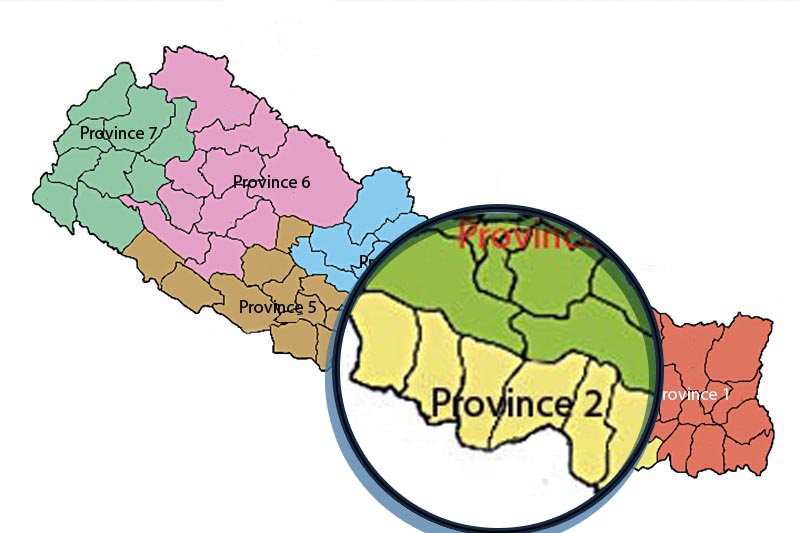‘Passage of Province 2 Police Bill conforms with provision in the constitution’
Kathmandu, October 24
Although Co-chair of Nepal Communist Party (NCP) Pushpa Kamal Dahal warned the government of Province 2 yesterday not to enact the Provincial Police Bill before the federal government brought an umbrella law, lawyers said the Province Assembly of Province 2 was acting in conformity with the constitution in passing the provincial Police Bill recently.
Senior Advocate Chandra Kanta Gyawali and Surendra Kumar Mahto said provincial governments had exclusive power over provincial police and hence the PA of Province 2 was within its rights when it passed a bill related to formation of the provincial police. “This is an exclusive right and concurrent powers do not prevail over exclusive powers,” they added.
Gyawali said the federal government needed to know that provincial and local governments were not subordinate governments, adding, that in federal countries, the government facilitated the process by bringing comprehensive acts in the beginning, but in Nepal the federal government had not done this.
“Our federal government is not doing enough to provide umbrella laws, supply required number of employees to local tiers of government,” he said.
Gyawali said the federal government, which was supposed to formulate criteria on concurrent powers by defining the jurisdictions of the federal, provincial and local governments, had not done the needful yet.
Mahto said Article 197 of the constitution gave provincial assemblies power to frame laws under the jurisdiction of the provincial government in relation to matters listed in schedule 6, 7 and 9 of the constitution.
Mahto, however, said as per Article 268 (3) of the constitution, the operation and supervision of central and provincial police and coordination between them would be governed by a federal law. This means the federal government has some role in these things.
Mahto also said the federal government could still bring a law to define the provision of Article 268 (3) of the constitution.
Senior Advocate Purna Man Shakya said the federal government had exclusive power over issues related to the central police, while provincial governments had exclusive power over issues related to provincial police. Therefore, there should be harmonious interpretation of these two constitutional provisions. He said the federal government had not
given space to provincial governments in matters related to policing. “In federal countries such as India and the US, investigation of organised crime, terrorism and financial crime falls under the jurisdiction of the federal government, while investigation of other crimes such as murder, sexual assault and theft falls under the jurisdiction of provincial governments,” he said, adding that it would be wrong on the part of the federal government not to give powers of investigation to provincial governments.
Chief Minister of Province 2 M Lalbabu Raut told THT over phone from Janakpur that the province had exercised its exclusive power to form the provincial police and there was no need to backtrack on the issue.
Advocate General of Province 2 Dipendra Jha said that the PA of Province 2 had not violated any constitutional provision by passing the Provincial Police Bill as the newly passed bill had stipulated that the federal law would guide the supervision and coordination processes as stipulated in Article 268 of the constitution.
“The federal government did not act, it rather went ahead with the process of recruiting 7,000 more police personnel,” Jha argued.






